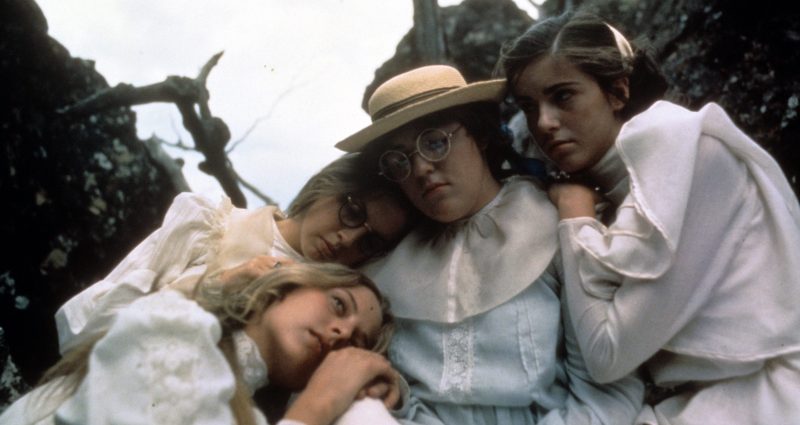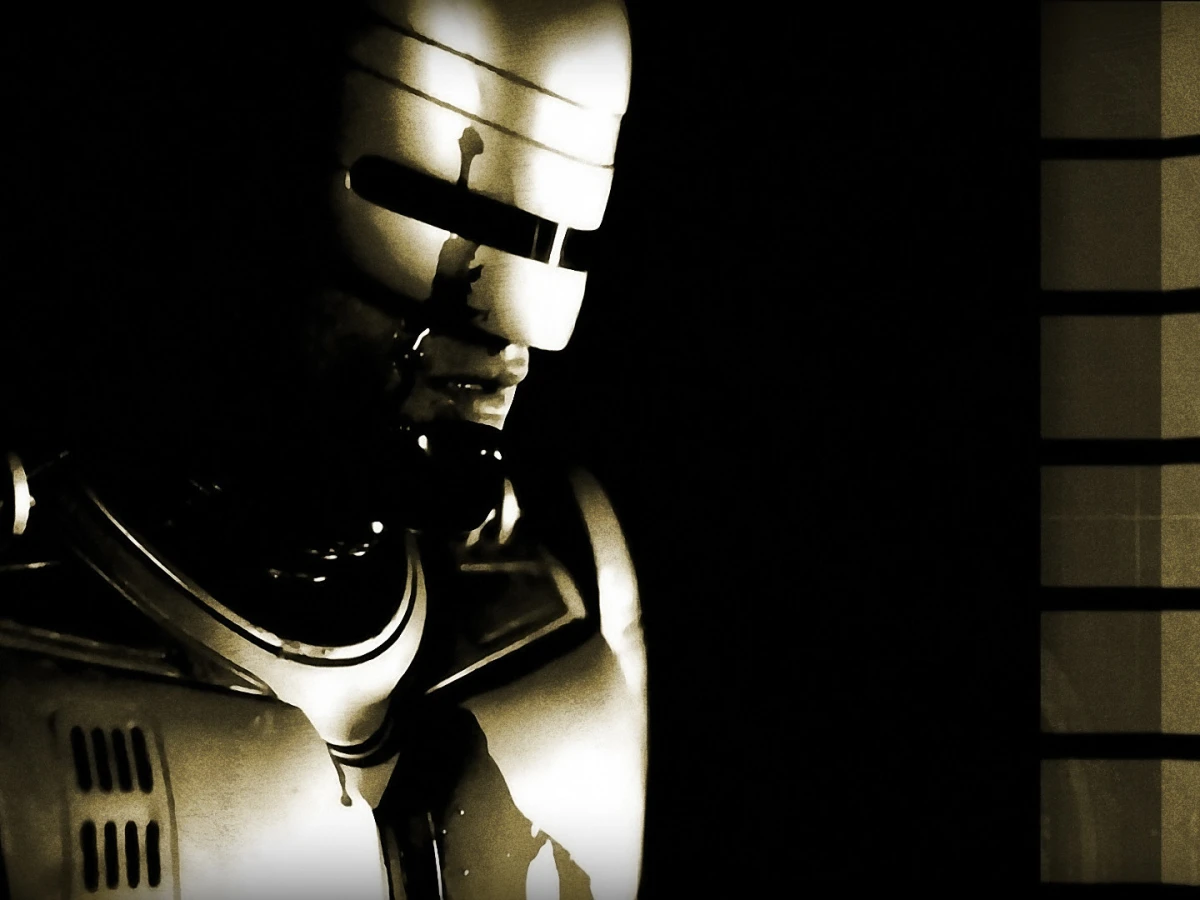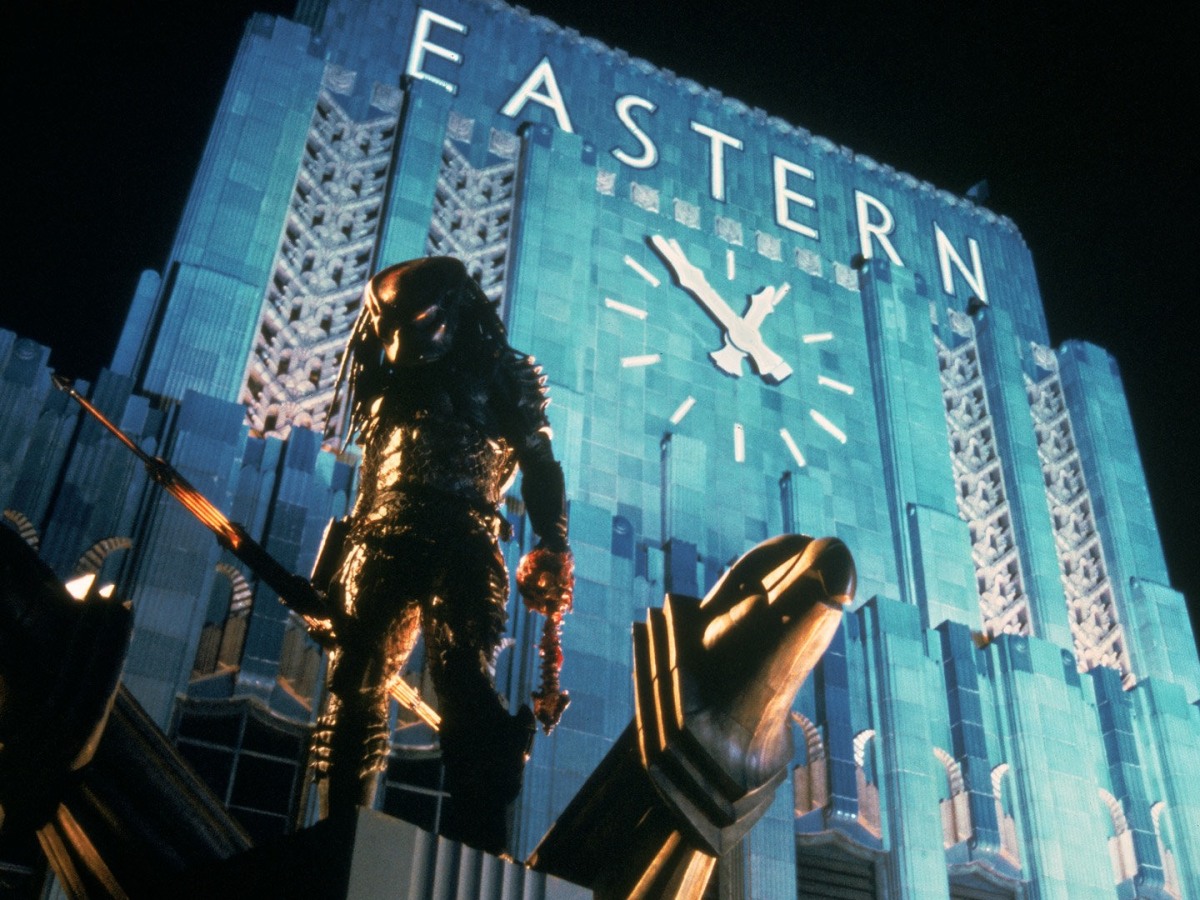
One of the most underseen and underappreciated movies of its era, VHS Revival explores the 80s cult classic that never was
Movies are forgotten all the time. Some are born on the fringes and stay there. Some arrive with a bang and slowly slip into obscurity. Others barely get going before they’re banished to the annals of anonymity, written-off for reasons that are so beyond a filmmaker’s control you’d need the thick skin of an elephant to keep from imploding. Some movies age badly, be it technically, thematically, politically or otherwise. Others are plagued by misfortune, burdened by production or financial complications, subjected to studio interference, beaten to the commercial punch in a way that makes them obsolete. In a modern, Marvel Universe climate of big budget, CGI extravaganza, even the likes of Martin Scorsese have found it difficult to get their work in front of a paying audience.
Many of those forgotten movies we can do without, but in a fickle industry of massive stakes and returns over creative integrity, some are lost through no particular fault of their own. I’m talking about good movies here, even great movies, the kind that contestants fumble over on quiz shows, that lay dormant in the cloudy recesses of your memory banks, too vague to unearth or even recall. I hadn’t seen or heard of Steve De Jarnatt’s Miracle Mile when I caught it on late-night TV quite unexpectedly; nor had my friends when I raved about it for days thereafter. And do you know something: none of them ever took it upon themselves to watch it, even after glowing reviews that implored otherwise. Some films are elusive like that. They remain in the shadows, almost illusory. Not only was I surprised by the fact that I hadn’t heard of Miracle Mile, it struck me as odd that it didn’t become an instant cult classic. Today it has something of a loyal following, but not on the level that many other offbeat 80s favourites achieved.
Miracle Mile is a curious little number, and I mean that in the most positive sense. It begins innocently enough, hitting like a John Hughes romantic comedy during its opening moments, two misfits drawn to a fated meeting overlooking a tar pit at a prehistoric museum, a subtle nod to where we are heading thematically. Their union is odd but comfortable, their personalities quirky yet insular, and when we see the movie’s title appear on the back of a passing tram, we immediately realise that we’re in for a somewhat idiosyncratic journey, Tangerine Dream adding their own inimitable touch to proceedings with a typically surreal soundtrack of ethereal elegance. Even with those early warning signs, we are distinctly unprepared for the extent of the movie’s anomalous symptoms, for what begins as a whirlwind romance descends into something rather more cataclysmic, and before long we are plummeting down the nuclear rabbit hole as offbeat romance becomes blackly comic thriller, something closer to Martin Scorsese’s similarly overlooked After Hours.

It probably won’t surprise you to discover that Miracle Mile struggled to make the jump to celluloid, wallowing in development purgatory for more than a decade. In 1983, the screenplay was cited as one of the ten best in Hollywood that was yet to be made. De Jarnatt, who had written the script as an aspiring filmmaker straight out of the American Film Institute, naturally wanted to direct, but Warner Brothers, for whom he had written it, were intent on making Miracle Mile into a bigger scale, more commercially viable project, one that could not be entrusted to a rookie, regardless of his understanding of the material. With the film in turnaround for a whole three years, De Jarnatt eventually took the radical step of optioning it himself, buying it back for $25,000 and turning Warner Brothers down when they later offered to purchase a re-write for almost twenty times that much.
Okay, well I answered the phone because it was ringing, and the guy he just started yelling, ‘Dad! Dad! It’s happening! The Big One! We’re locked in!
Harry Washello
De Jarnatt had a vision that went against Hollywood’s big-name, big-production ethos, and was steadfast in his resolve. With its original creator now pulling the strings on his own terms, Warner Brothers felt that the screenplay wasn’t reaching its full potential, the stark contrast of romance and impending doom not sitting right with them. Practiced in the art of commercial savvy, they felt that his vision lacked the ingredients for widespread appeal, significantly impacting the film’s prospective box office. This was further reflected in the project’s eventual casting. The movie would ultimately star Top Gun‘s Anthony Edwards, who would later explain, “…that was a script that everybody wanted to make, but they wanted [De Jarnatt] to change the ending. It was this great adventure, but they wanted it to have a happy ending. But he stuck it out, and luckily he stuck it out long enough that I was old enough to play the part.”
Commercially speaking, the studio was right. Without their backing and Jarnatt’s unwillingness to bend to convention, Miracle Mile bombed at the box office before slipping into obscurity, but creatively they did us all a favour. Free from major studio constraint, De Jarnatt produced a delightfully unusual film: quirky, thematically challenging and devastatingly unsentimental. It is also touching, intimate in a way that often evades more studio-friendly films, but laced with an acerbic sense of tragicomedy, a unique balancing act that is testament to the director’s unyielding vision. It offers a darkly humourous, often damning window into the mindset of not just American society, but of the entire human race. It’s just a shame that we didn’t get to see more of the director’s inimitable approach to filmmaking, Miracle Mile his last flirtation with the silver screen.

Tonally, Miracle Mile is unrepentantly against type, a fact that no doubt contributed to its evaporating stature following positive pre-release reviews. It still has the hallmarks of a dysfunctional 80s romcom, a three-day whirlwind romance hitting a comedy of errors obstacle after a pigeon latches onto protagonist Harry’s cigarette butt, triggering a freak electrical fire that cuts the power to the alarm clock in his hotel room. This causes him to ‘stand-up’ new squeeze Julie (Mare Winningham), the typical set-up for a humorous bout of Hollywood redemption, but Miracle Mile is not a movie that will rest on its laurels. When Harry arrives at the proposed rendezvous spot in the early hours of the morning, he leaves a message on Julie’s answering machine, and when the pay phone that he used immediately calls back, he naturally rushes to answer, but instead of Julie’s voice, Harry is confronted by an hysterical man searching frantically for his father. He has apparently dialled the wrong number through sheer panic and is desperate to apologize to his pops before it is too late. Supposedly stationed at a classified outpost in Nevada, the man claims that the US government has instigated all out nuclear war and that retaliation is expected within the hour. The man is then interrupted before he can elaborate and is apparently shot to death.
As twists go, this is one of the most unexpected—the equivalent of having your lead die with much of the movie left to run—only the red herring here is the film’s sweetly dysfunctional tone and a familiar set-up that quickly spirals into the realms of chaos and uncertainty. There is a huge Hitchcock influence at play, one that continues to reveal itself as we are introduced to a rabble of late night cafe dwellers, an eclectic bunch whose varied responses to our protagonist’s ostensible ravings offer us very little comfort as we soar headlong through the second act, one which reveals a tenuous and often selfish society focused on personal survival. De Jarnatt, now a short fiction writer, cut his directing teeth shooting the pilot for the 80s incarnation of Alfred Hitchcock Presents, and Edwards’ everyman breathes the same air as many of the filmmaker’s most memorable protagonists.
Miracle Mile takes a considerably darker turn thereafter, but an odd undercurrent of comedy keeps audiences on their toes, particularly when Harry kidnaps a car stereo thief named Wilson (Mykelti Williamson) and the two of them contrive to douse a pair of cops in petrol and watch on helplessly as they go up in flames, a microcosm of the movie’s tenuous line between gallows humour and all-out despair. The tension that such a fine balancing act forges is ceaseless, palpable, borderline oppressive at times. Later, when that same thief attempts to carry his dying wife up a downwards moving escalator, a dead-on visual gag that leaves you feeling exhausted, raising a wry smirk rather than balls-out laughter based on the story’s increased sense of futility, the writing appears to be on the wall. All of the characters’ best efforts, like those of a species that annually spends trillions of dollars on defence in their quest for world peace, seem doomed to a particularly wicked sense of irony.

Miracle Mile arrived amid a debris of Cold War movies at a time of tenuous ideological conflict. The majority of those movies, like Sylvester Stallone’s hyper-stylized blockbuster sequel Rocky IV, promoted American exceptionalism with a grandiose, cartoon fervour. Lower down the totem, a plethora of B-movies reduced the threat of war to pure child’s play, movies such as Corey Yuen’s gloriously silly No Retreat No Surrender chock-full of icy stereotypes and puerile revenge fantasy. Other movies, such as Mick Jackson’s Barry Hines penned apocalyptic war drama Threads, took a no-holds barred approach to the very real-consequences of nuclear destruction, piling on the dread to realistic, almost unbearable levels. Conversely, Miracle Mile was unique to its time and place, harking back to the likes of Stanley Kubrick’s absurdist 1963 black comedy Dr. Strangelove.
The era in which Miracle Mile was released likely played a part in its poor commercial reception. American society had changed pretty radically since the 1960s, the hope and peaceful sentiments of the Civil Rights Movement giving way to an era of Wall Street greed, neoliberal politics and a renewed sense of nationalism. Movies had also changed, the sobering conspiracy films of a post-Watergate 70s replaced by an era of popcorn entertainment, a fantasy realm in which America, emboldened by patriotic sentiments, conquered all with bulging biceps, pearly white smiles and bombastic flag waving. Even those late to the party Vietnam Films of the 1980s were pushed through cautiously, Paramount’s reluctance to greenlight the release of Hamburger Hill relegating that particular film to a similar shadowy void while Oliver Stone’s Platoon and Kubrick’s Full Metal Jacket picked up the spoils and the plaudits. With the very real threat of nuclear annihilation hanging over the West, audiences were understandably averse to a movie of Miracle’s Mile‘s thematic persuasion, particularly in the guise of quirky, offbeat black comedy.
There is also the film’s casting to consider. Despite being regulars in teen comedies of the era, Fast Times at Ridgemont High‘s Edwards and St Elmo’s Fire‘s Winningham weren’t exactly marquee draws, their characters atypical to movies in which the prospect of a nuclear apocalypse rears itself, particularly in such a hero-laden, muscles to burn 80s climate. Such predicaments are typically left to the Stallones and Schwarzeneggers of the world, female leads grateful accessories to the fact. The gangling Edwards is a deeply unconventional protagonist, unfeasibly patriotic sentiments and notions of triumphalism giving way to a more grounded, less emphatic sense of heroism, the kind that reveals itself more intimately. Similarly, Winningham isn’t the hour glass bombshell with the full lips and improbable levels of resilience. She spends a portion of the movie whacked-out on valium, the calling card of an era of suppressed feelings, psychiatric gorging and pharmaceutical dependence.

But definitions of heroism are not always so obvious. It is much easier and more rewarding to relate to flawed characters, the kind who never look capable of overcoming such insurmountable odds. Even action movies understood this, the likes of Die Hard, which is still considered one of the genre’s high points, ditching the seemingly immortal, musclebound profile for the much more human and relatable Bruce Willis, the reason why that film continues to endure. Some protagonists, like those in Miracle Mile, belong nowhere near a blockbuster scenario, something De Jarnatt singularly understood in the face of studio pressure. “What can you do to find some grace and meaning in the last few minutes of humanity? [Accept] love,” he would say when summarizing his greatest cinematic achievement. “Two people meet among the extinct species of the [La Brea] museum and at the end, they are perhaps going to be dug up to be put on display in some future museum. At least that semblance of a sort of immortality is all you can hope for.”
Of course, Miracle Mile would have been very different, perhaps Warner Brothers different, if lumbered with the burden of traditional star power. An actor with heroic connotations would have killed this movie, as would a pouting head-turner oozing sexuality. Both would have distracted from the sobering tone of a movie that you can lose yourself in on a much deeper, introspective level, its more surreal qualities coming from the idea that all-out catastrophe, however well-concealed and instinctively dismissed, is forever breathing down our necks, lurking like a cruel magic trick that’s just waiting to unfold. Edwards was the complete embodiment of an everyman who went against the cosmetic principalities of Hollywood, Winningham his unconventionally attractive female equivalent, but they are so perfect for this movie and for each other. Their romance is sweetly dysfunctional and completely relatable, a far cry from the fickle, superficial pretensions of 80s Hollywood, or even the anarchic but ultimately idealist films of someone like John Hughes. The fact that Edwards and Winningham became a real-life couple after starring in Miracle Mile, something that I would find out much later, didn’t surprise me one bit.
People are gonna help each other, aren’t they? Rebuilding things?
Julie Peters
Edwards and Winningham’s level of chemistry is hugely infectious, as are the characters who they forge. Harry begins as a lovable nerd whose biggest goal is to meet the woman of his dreams, and Julie is similarly perplexed by her lack of a love life, turning to self-medication and flip cynicism while her beau finds solace in the typically subdued extravagances of his craft, occasionally lighting up a local brass band with impromptu jazz solos. The two of them know how it is to be condemned by fate, a notion highlighted by a scene in which they pay a thousand dollars for a tank of restaurant lobsters as a means to set them free. The two have learned to laugh to keep from crying, have become comfortable with life’s unyielding sense of futility, or at least they assume they have.

When that futility becomes more immediate and focused, Harry is spurned into action, limply heroic as he wanders the city streets waving a pistol. Suddenly he takes charge of a life that has so far meandered, and when he catches up with his love in the tower block apartment where she lives with her mother, he does his best to keep the news from her as he searches for a helicopter pilot to fly them to safety. In a world plunged into self-preservation and unfiltered hysteria, Harry’s well-meaning ruse becomes increasingly difficult to maintain as citizens loot and pillage in some misdirected attempt to prosper. Soon, guns and violence become the order of the day, the terrified and inconsolable turning on each other at will. A wonderfully frenzied cameo by Kurt Fuller encapsulates such wanton hysteria, his character pacing up and down the roof of a skyscraper screaming and gorging on Xanax, the personification of the hurried mess that the world has gotten itself into.
The difference between the majority of American Cold War movies made during the 1980s and Miracle Mile is that you can’t envisage, or at the very least you dare not imagine, the outcome until the bitter end, a dead-on commentary on the fragile and uncompromising nature of nuclear war itself. Even those movies, like the aforementioned Threads, which tread a much darker, more visceral path, are plain in their intentions, but thanks to rumours of a false alarm and the film’s darkly comic touch and sweet sense of romance, there’s always enough doubt to keep you mildly hopeful. When events do reach a conclusion, those accustomed to crowd-pleasing jolts may be disappointed, but it is Miracle Mile‘s refusal to bow to cinematic convention that keeps us guessing.
Miracle Mile is more effective than the majority of Cold War cinema, refusing to promote political allegiances and stripping humanity to the bare bones. The movie is more about the journey, and the ways in which its characters shuffle the cards that they have been dealt. There is no moral crusade or emotional manipulation. You are presented with events and experience them almost firsthand. You stumble aimlessly as the characters do. It is less an allegory on the pitfalls of nuclear armament, more a study of the human condition, of the tenuous nature of civility and the repressed fragility of our very existence. In the end, we will fight for our lives and the lives of those who we love, but beyond that our race treads a very delicate line, and though centuries of evolution have established an outward sense of decorum, the destruction of mankind seems but a petty quarrel away.
Director: Steve De Jarnatt
Screenplay: Steve De Jarnatt
Cinematography: Theo van de Sande
Music: Tangerine Dream
Editing: Stephen Semel &
Kathie Weaver






































